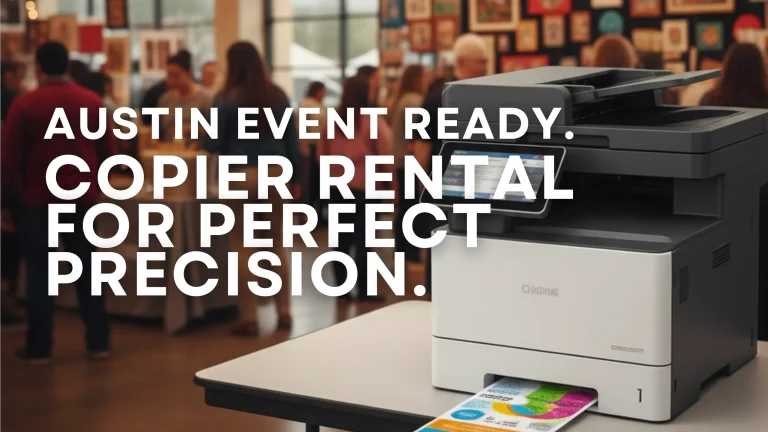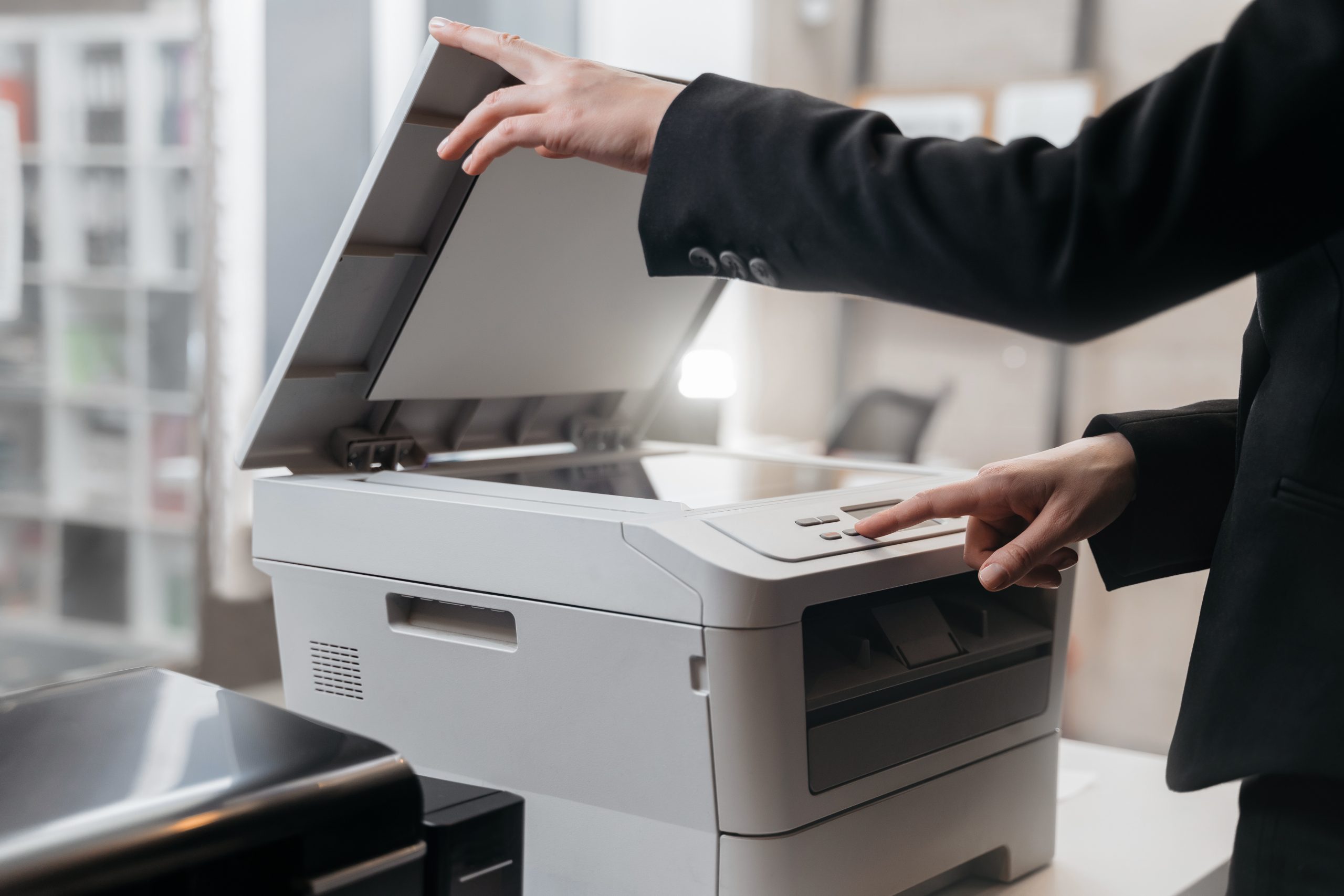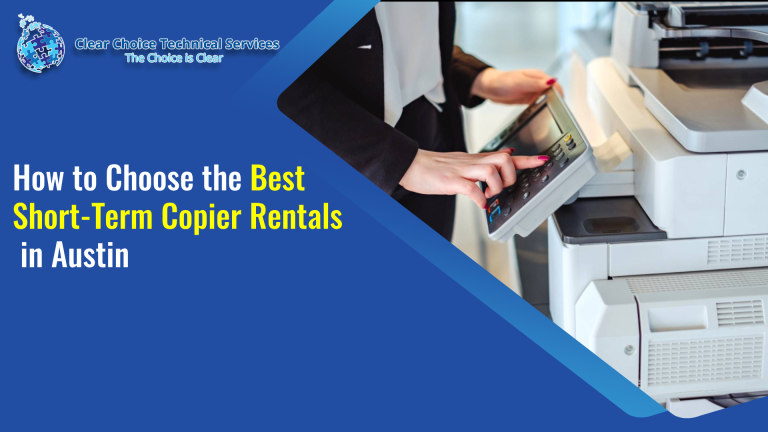Leasing vs. Loan vs. Financing: Choosing the Best Equipment Acquisition Method
Replacing and improving new technology is a big decision for any company. For instance, office equipment like printers is expensive, so you must budget carefully. Business owners always struggle to balance their finances and operational budgets.
No matter how large or small your business stands, you likely wonder, what is the best path forward? Buy or lease an office copier? This is not an easy choice! That is why in this post, we will compare the pros and cons of buying or leasing a copier and determine which option best serves your long-term goals.
Lease Types: Operating vs. Capital Leases
Your decision will boil down to your specific financial and tax goals. If you choose to opt for copier lease services, you generally have two main choices based on how the IRS views the transaction:
- Operating Leases (Fair Market Value Leases): The equipment is simply for rent, so the renter does not include the assets in their balance sheets. This option is best for companies who want to lease new versions of equipment constantly.
- Capital Leases ($1 Buyout Leases): This lease is similar to a loan, wherein interest and principal payments are made. These expenses will all be put into the lessee’s balance sheet, meaning you will pay a higher monthly rate.
3 Equipment Acquisition Methods: A Financial Comparison
Similar to a purchase, loans provide more “ownership” features of the device. Conversely, with a lease, the lessor holds the title to the equipment and offers you the option to buy it only when the copier lease contract ends. Regarding direct financing, this option enables you to keep the title to the leased products.
| Funding Method | Title Ownership | Rate Structure | Key Drawback / Use Case |
| Loan | Borrower (You) holds the title. | Variable rate (could fluctuate). | Drawback: Requires large deposits (often 20%). Best for established companies. |
| Leasing | Lessor holds the title (option to buy at end). | Fixed Rate (predictable monthly payments). | Best for: Flexibility, managing cash flow, and tax benefits (lower APR). |
| Financing (Factoring) | Borrower (You) retains the title. | Rapid revenue conversion (not a traditional rate). | Best for: Small, start-up companies needing rapid cash (e.g., transport). |
Loan and Financing Drawbacks
Loan Drawbacks
It is crucial to note that a loan impacts your company’s credit report significantly. Consequently, this makes it tough for small, start-up businesses to obtain an approved application. For this reason, established companies mostly use loans.
- Variable Terms: Unfortunately, term flexibility remains one of the most notable drawbacks of choosing a loan. Unlike leasing, which supplies fixed-rate funding, a credit line or loan could fluctuate throughout the term. Therefore, budgeting becomes troublesome when the rate varies.
- Large Deposits: Aside from this, loan providers like banks commonly require a much larger deposit—most of the time demanding 20% of the total equipment expense.
Financing as a Rapid Alternative
Beyond loans, financing offers a great alternative to buying costly devices and is commonly quicker than the loan application process. By leveraging your receivables, you can rapidly turn outstanding payments into revenue by selling these expenses to a separate entity. Ultimately, this makes the option a popular resource for small operations and businesses that require contracts with a quick turnaround.
Flexibility and Tax Incentives
Are the Financing Terms Versatile?
Leases offer the most flexible financing alternatives compared with loans. Depending on the specific structure, you choose to start with low payment rates and increase them slowly as time goes by. Furthermore, you can defer payment to give yourself an extra window before the first payment is due, and you can add extra devices to the existing lease under the “master lease” term structure.
Who Makes the Most of the Tax Incentive?
Under a loan structure, a company can declare depreciation. However, you must provide a deposit and be accountable for a higher interest rate.
Under a copier lease contract, the lessor claims depreciation. In exchange for this, they provide a lower Annual Percentage Rate (APR) that is typically half of what a loan offers. If the depreciation credit is important to you and you still want to lease, you can inquire about the availability of financing or capital leases.
Conclusion
Your decision, whether to buy or lease, will entirely depend on your business needs. Sometimes, buying is feasible, and sometimes leasing is. However, if you are still undecided about what is best, we can help you.
We specialize in assisting businesses with their decision-making in all their technology needs.
If you plan to get copiers for your Austin office, you can opt to buy copiers or lease copiers in Austin. We can give you options for getting the copy machine that you want. You can contact our local copier leasing services department in your location.
For all services in Austin, call Clear Choice Technical Services:
- Phone: (512) 253-7000
- Our personnel for copier leasing in Austin will assist you.
- Additionally, if you look for copier repair services in Austin, you may contact our copier repair personnel at the same number.







